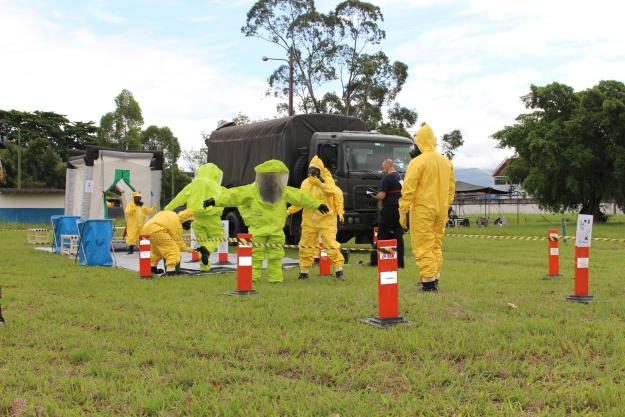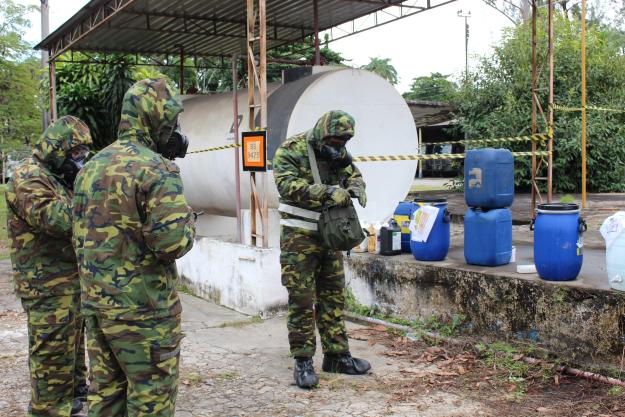
THE HAGUE, the Netherlands — 11 June 2019 — First responders from Latin America and the Caribbean (GRULAC) acquired essential knowledge on handling emergencies involving hazardous chemicals after an Exercise on Assistance and Protection against Chemical Weapons held in Rio de Janeiro, Brazil, from 3-7 June.
A joint project by the Organisation for the Prohibition of Chemical Weapons (OPCW) and the Brazilian Government, the exercise was aimed at enhancing the skills gained by the first responders during the basic and advanced courses held in Panama and Argentina in 2019. The 40 graduates are now fully trained and ready to support their countries’ capacities in protecting citizens during emergencies involving chemical weapons and toxic chemicals.
During the opening ceremony, representative of the Ministry of Science and Technology, Colonel Bernardo Sylvio Milano, highlighted the importance Brazil attaches to capacity-building in assistance and protection against chemical weapons and stated: “Brazil will continue cooperating in regional and global arenas to achieve the full implementation of the Chemical Weapons Convention.”
Senior Program Officer of OPCW’s International Cooperation and Assistance Division, Ms Ditta Ciganikova, underlined that such trainings are “important in building reliable national and regional capacities to protect citizens during chemical emergencies”.
The course benefited participants from 20 OPCW Member States, representing various agencies involved in emergency response in Latin American and the Caribbean.
Background
Brazil joined the Chemical Weapons Convention in 1996. The country has been actively cooperating in regional and international capacity-building activities since 2009, and is an important partner for the OPCW in the provision of chemical defence training in Latin America and the Caribbean region.
As the implementing body for the Chemical Weapons Convention, the OPCW, with its 193 Member States, oversees the global endeavour to permanently eliminate chemical weapons. Since the Convention’s entry into force in 1997, it is the most successful disarmament treaty eliminating an entire class of weapons of mass destruction.
Over 97% of all chemical weapon stockpiles declared by possessor States have been destroyed under OPCW verification. For its extensive efforts in eliminating chemical weapons, the OPCW received the 2013 Nobel Peace Prize.
More Information

